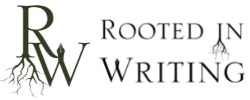The time has come. The time that I have to admit to myself that it’s week 4 of NaNoWriMo and I have a paltry 5,000 words written out of my 50,000 word goal. Unless I sequester myself away for the next two weeks (and with Thanksgiving this week, that’s not possible), I won’t hit my goal this year. Again.

Every writer has this moment. It’s that feeling of disappointment when you glance at social media and see everyone else crushing their word count. It’s that itchy sensation of “I’m so behind,” even though you’re the one setting the deadlines. In times like these, when you’ve missed your goal and feel like everyone else is more productive than you, it can be easy to just step away from writing.
But, these are exactly the times when you need to celebrate the writing achievements you have completed. We’re our own worst critics, and sometimes (especially if you’re a perfectionist like me), that one instance where we fell short overshadows all the moments we did achieve our goals. So, how can you pull back and cheer yourself on to stay motivated?
When you’ve got that massive word count goal staring you in the face, it can be hard to think of other achievements. After all, writing is about putting the words on the page, right? Yes, but there are plenty of other ways you’ve been nurturing your writing mind. Even if they don’t feel like big milestones, all the activities below are actively making you a better writer and should be celebrated!
5 Writing Achievements to Celebrate
1. Created an outline
Especially if you’re a plotter, creating an outline is a huge first step. It tells you the arc your story will travel. It means you’ve thought long and hard about the internal and external conflicts of your book, which means less time wrestling with these problems within your draft.
2. Developed your character
Whether you’ve journaled as your character, created character profiles, or just sat around thinking about what your character would do in a situation, this is all valuable work. These exercises may never make it to your actual book, but they’ll inform what your character does within the story. Characters who have been well-developed feel much more real and alive on the page, something that is well worth celebrating.
3. Researched worldbuilding elements
While writing is all about “writing what you know,” sometimes you have to fill the gaps in your knowledge. Maybe you spent a day reading about the different types of ruling systems to figure out which is best for your world. Or maybe you spent hours watching martial arts videos on YouTube to get your fight scenes just right. Perhaps you sent some inquiries to experts about a subject you’re covering. All of these are hugely important to building depth in your story and adding authenticity.
4. Built an aesthetic board
I’m a really visual person, so when I’m exploring a new world in my head, it’s really important that I understand what it looks like. Although aesthetics can definitely be a method of procrastination, if you’re building one or two, it can help bring your world to life. This makes the task of description and scene setting that much easier when you’re putting pen to paper.
5. Read a book
Or ten books. Or a handful of short stories. You’ve heard us say it before and you’ll hear us say it again: a good reader makes a good writer! Even though it can feel like reading is taking away from your writing time, you’re still flexing your creative muscles. As you read, you’re absorbing important elements of writing. How is tension built throughout this chapter? What did the writer do to make you fall in love with the main character? Reading, especially in your genre, helps you understand certain conventions and can inspire you in ways chaining yourself to your computer never will. So, never begrudge your reading time!
Final Word
Remember, writing isn’t about just putting words to the page (although that’s a lot of it). There’s so much else that goes into creating a good book. Remember to give yourself credit for all these achievements, not just completing your word count goals.
Need help plotting your novel?
Schedule a coaching call today!
In one session, we’ll work together to find your novel’s why so we can cast your characters, plot out your chapters, and create a writing schedule to put you on track to finishing your first draft this year.


Kristen Bickerstaff is an editor and marketing coach at Rooted in Writing. She has a bachelor’s degree in English literature and media & communications from Tufts University and a master’s degree in marketing & communications from Southern Methodist University. Kristen loves reading and editing all genres of fiction, but she has a special place in her heart for anything in the science fiction/fantasy genre.
You can hang out with her on Twitter @kristenbwrites.

